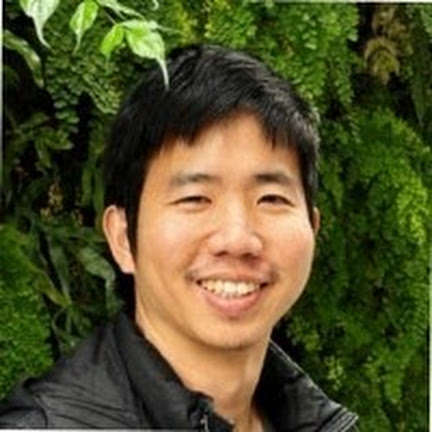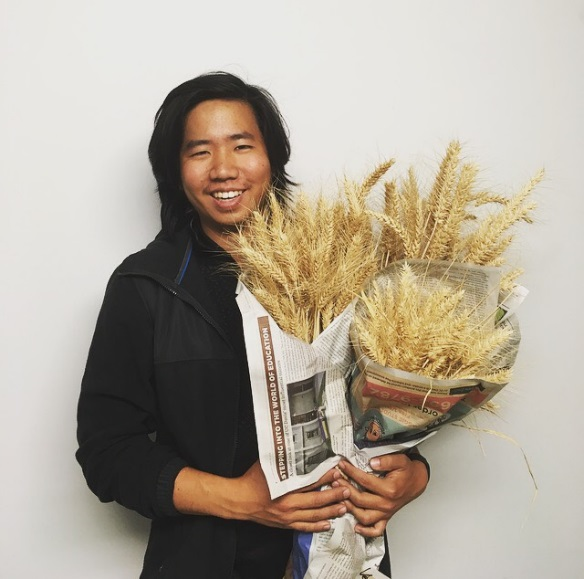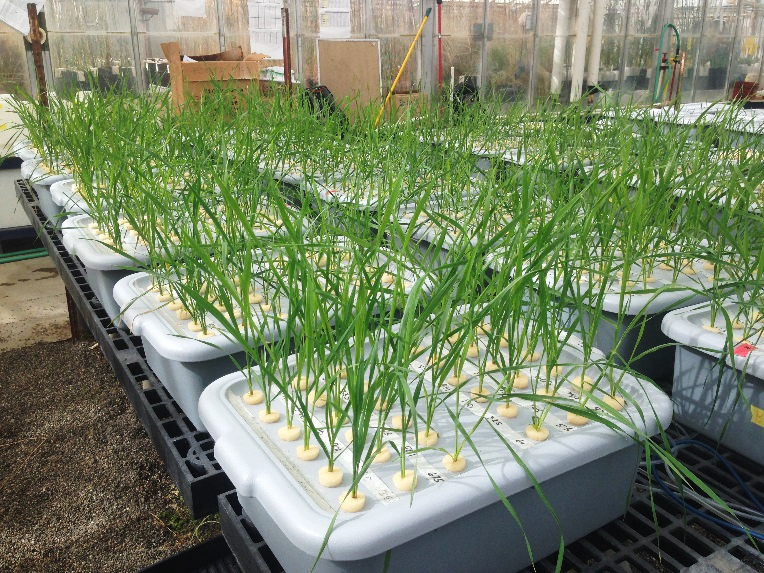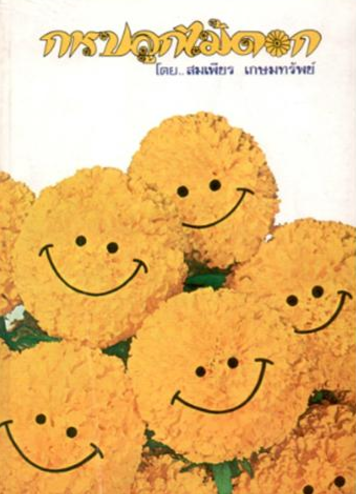Paul Kasemsap
พรพิพัฒน์ เกษมทรัพย์

~growing plants for improved wellbeing
UC Davis Plant Breeding Center Graduate Student Spotlight
This is an excerpt from an article first published by UC Davis Plant Breeding Center in June 2018.

Pornpipat “Paul” Kasemsap
Sawasdee Krub (= Hello! in Thai). I grew up in a jungle of skyscrapers in the city of Bangkok, Thailand. Yet, I was fortunate enough to have cultivated my love for nature through the time I spent in our backyard at home. I was drawn into farming because of my grandmother, who used to teach Floriculture. Seeing all the colorful flowers, especially her marigolds, always brightened up my day. You would find me after school “experimenting” with my plants, from trying new soil mixtures, to tasting different plant parts. Having learned how plants can feed humankind, economically, gastronomically and mentally, I realized I’m happiest when working with plants and gladly decided to pursue a career in Agriculture!
My official Aggie journey began at Kasetsart University, Thailand, where I got an Agricultural sciences degree, and learned about challenges facing farmers in developing countries from my classes and classmates. Then I spent two years at Wageningen University, the Netherlands, pursuing my MS degree in Plant Sciences, and enjoying rain and stroopwafel while nurturing some greenhouse tomatoes and growing Arabidopsis on salty water.
I’m about to start my third summer in Davis; still, it feels like yesterday that I just moved across the world to begin this new chapter as a Ph.D. student in Horticulture and Agronomy with Professor Arnold Bloom. At UC Davis, I get to meet all great individuals working on a quest to feed our hungry planet! I couldn’t be happier with my decision to join this challenge!

What is the best part of being at UC Davis? Working on my research, of course! I get to combine my passion for plants and climate change to make sure wheat (Triticum aestivum L.) maintain its nutritional value under conditions anticipated in the near future. Wheat is a major food crop supplying a substantial amount of protein as a part of human daily required calories. However, as atmospheric carbon dioxide (CO2) concentration rises, it inhibits an assimilation of nitrate (NO3-) into protein in wheat grain. Breeding for wheat with less sensitivity to changes in atmospheric CO2 levels through improved assimilation of ammonium (NH4+), another inorganic nitrogen form in soil, may be a solution. Still, the ability of current varieties to employ NH4+ as their major nitrogen source, instead of the predominant NO3-, remains an open question. Therefore, the goal of my work is to elucidate the extent to which variation in responses to NH4+ exists in natural wheat populations and to address whether we can utilize this existing variation to ensure our food and nutritional security under future climate conditions.
At UC Davis, I have always felt supported to become “the best of myself,” so that I soon can help others in need.
The following quote sums up what what I learned from my journey here so far:
“We’re the Aggies: the go-getters, change makers, team players and problem solvers. We’re a unique and energetic community built on diverse backgrounds, experiences and expertise; and we’re intent on making the world a better place” (UC Davis: Welcome to the home of the one of a kind). I truly appreciate the variety of opportunities for professional development this community provides. This community also demonstrated to me the significance of collaboration; we don’t have to be an expert in everything. This is why we need to communicate with each other, within and across our fields of expertise, as well as with the general public. Combining our strengths always leads to a better outcome!
The love for my grandmother’s flowers in my childhood has brought me new challenges every day, and the journey still continues! I thank my family, friends, and all my mentors for their continuous support. With what I have learned throughout my Ag-exploration, I hope to work with international organizations whose works aim to address food security, climate change, and education. I encourage my fellow students to make the most of our unique journey; reach out and explore all the opportunities and resources available to us. Cherish our passions and keep experimenting in life!

news tag:
science plant gradschool Read more thoughts:
-
Genome-wide Association Study of Rice Vegetative Growth under Ammonium or Nitrate Nutrition (31 Jul 2025)
-
The inaugural Bay Area Plant Hub Symposium 2025 (17 Apr 2025)
-
How can we cultivate an innovative plant science community? (16 Apr 2025)
-
[Dataset] Vegetative biomass production under different inorganic nitrogen forms of the USDA rice (Oryza sativa L.) diversity panel 1 (17 Mar 2025)
-
Mission N-Possible: Influence of Inorganic Nitrogen Forms on Small Grain Crop Carbon Assimilation (13 Sep 2024)
-
Genome-wide Association Study of Rice Vegetative Biomass under Different Inorganic Nitrogen Forms: Ammonium or Nitrate (13 Aug 2024)
-
Genetic adaptation to ammonium sustains wheat grain quality and alleviates acclimation to CO2 enrichment (23 Nov 2023)
-
Sharing research data (25 Jan 2023)
-
Breeding for Higher Yields of Wheat and Rice through Modifying Nitrogen Metabolism (23 Dec 2022)
-
Giving credit where it's due (18 Nov 2022)
-
Lessons beyond classroom: 12 opportunities to grow a better self while in college (10 Aug 2022)
-
Everything, Everywhere, All at Once (01 Aug 2022)
-
UC Davis Plant Sciences Symposium 2022 Award Winners Announced - Paul gave the best student talk! (27 Jun 2022)
-
I was told that: It's what you do that defines you. Is it? (20 May 2022)
-
I was told that: Opportunity is like a bus (20 May 2022)
-
Can we use personalized ads to improve our decision? (12 May 2022)
-
If you could choose better, would you? (12 May 2022)
-
How pottery helps me write (10 May 2022)
-
We need more conflicts (08 May 2022)
-
Rate My Lab! - A yelp-like platform to grade your advisor? (01 May 2022)
-
Life outside the lab - exploring passion projects beyond research (27 Apr 2022)
-
Thought of the week: Trash hunt squad? (22 Apr 2022)
-
Never have I ever… coded (and wondered into the world of data science) (18 Feb 2022)
-
Where do we get protein in our daily diets? (01 Jun 2021)
-
ภาษาไทย (15 May 2021)
-
Hello World (13 May 2021)
-
Find a talk - What if we can find all the talks in the world? (09 May 2021)
-
Meet Public Scholarship and Engagement Prize Winner: Paul Kasemsap (19 Apr 2021)
-
Meet the Fulbrighters Series: Pure & Applied Science - Paul joined a panel sharing Fulbright experience in the USA (30 Mar 2021)
-
Meet Paul Kasemsap, Horticulture & Agronomy Graduate Student and Grad Slam Finalist (19 Mar 2021)
-
ชีวิตติดโชค (01 Nov 2020)
-
ไนโตรเจน...ธาตุอาหารพืชเปลี่ยนโลก (05 Aug 2020)
-
Grad Innovator Fellowship 2020: Meeting Global Protein Demands and Optimizing Resources in the Face of Climate Change (01 Apr 2020)
-
Rising atmospheric CO2 concentration inhibits nitrate assimilation in shoots but enhances it in roots of C3 plants (23 Oct 2019)
-
UC Davis Plant Breeding Center Graduate Student Spotlight (01 Jun 2018)
-
“ไบเออร์” สร้างยุวชนเกษตร รับมือปัญหาความมั่นคงทางอาหาร (15 Nov 2017)
-
2 ยุวชน..หัวใจเกษตร กับเวทีสำคัญ..ภารกิจช่วยโลก!! (12 Nov 2017)
-
การประชุมสุดยอดยุวชนเกษตร (Youth Ag-Summit) ปี พ.ศ. 2560 (27 Oct 2017)
-
Characterisation of Arabidopsis thaliana candidate genes putatively involved in the response to salt stress (08 Jul 2015)
-
First day of class in Wageningen (21 Jun 2015)
-
A year in Wageningen UR (19 Jun 2015)
-
Fietsen are sustainable! (18 Jun 2015)
-
Changes in photosynthetic and other yield components contributing to yield improvement of Dutch tomato (01 Jun 2015)
-
การเดินทางจากสนามบิน Schiphol สู่ Wageningen (12 Aug 2013)
-
The appropriate supporting material for micropropagated Vanilla planifolia Jacks. ex Andrews plantlet (08 May 2013)
-
Effect of Drought Stress on Chlorophyll Fluorescence and Net CO2 Exchange Rate of Vanilla planifolia Jacks. ex Andrews (25 Mar 2013)